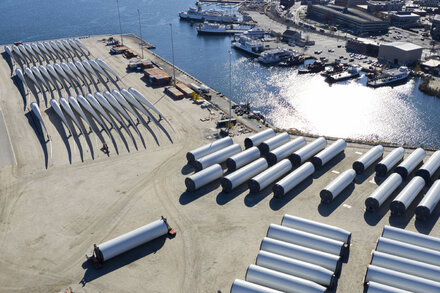OTTAWA – The Canadian government has signaled its growing concern over the protracted labor dispute between Canada Post and its largest union, setting the stage for potential intervention as negotiations appear deadlocked. With the current collective agreement expired for months, both sides are hardening their positions, raising the specter of a service disruption that could impact millions of Canadians.
The latest development came from the federal Minister of Labour, who issued a public statement urging both parties to reach a voluntary agreement but also hinting at the government’s preparedness to act if talks fail. This move is widely seen as an attempt to apply pressure, reminding Canada Post and the Canadian Union of Postal Workers (CUPW) of the essential nature of postal services.
“Our government recognizes the vital role Canada Post plays in communities across the country, and we expect both the employer and the union to negotiate in good faith to find a resolution,” stated the Minister of Labour in a press conference yesterday. “However, Canadians rely on these services, and we are closely monitoring the situation. We are prepared to take all necessary steps to ensure essential services are maintained, should circumstances require it.”
Sticking Points in Negotiations
Negotiations between Canada Post and CUPW have been ongoing for nearly a year, reportedly stalling on several key issues. The union has emphasized demands for fair wage increases that keep pace with inflation, improved job security amidst increasing automation, and better benefits for its members, particularly those in rural and remote areas. Canada Post, meanwhile, is seeking greater operational flexibility to adapt to changing mail volumes and the burgeoning e-commerce parcel market, along with a sustainable financial footing for the Crown corporation.
CUPW President, speaking on behalf of the union, expressed frustration with the pace of negotiations and the employer’s proposals.
“Canada Post continues to demand concessions that would undermine the working conditions and livelihoods of our members,” said the CUPW President. “Our workers kept the country running during unprecedented times, and they deserve a contract that reflects their dedication and the rising cost of living. We remain ready to bargain, but we are also ready to defend our members’ rights if a fair deal isn’t reached.”
For its part, Canada Post maintains its commitment to reaching a mutually beneficial agreement while ensuring the long-term viability of the postal service.
“We are actively engaged in negotiations with CUPW and are committed to reaching an agreement that is fair to our employees and sustainable for Canada Post,” a spokesperson for the corporation stated. “We understand the importance of our services to Canadians and are working diligently to modernize our operations to meet the evolving needs of our customers, while also addressing the concerns of our valued workforce.”
Historical Context and Future Implications
The history of labor relations at Canada Post has often been contentious, with several significant work stoppages in past decades leading to government intervention. The prospect of another “showdown” evokes memories of previous disputes that saw mail backlogs and economic disruption. Should negotiations ultimately fail, the government could impose back-to-work legislation, a measure often met with strong opposition from labor unions but one that successive governments have used to resolve essential service disputes.
As the deadline for a potential strike or lockout looms, all eyes will be on the next moves from Canada Post, CUPW, and the federal government, as the future of postal services across Canada hangs in the balance.
Source: Read the original article here.




